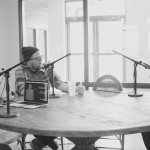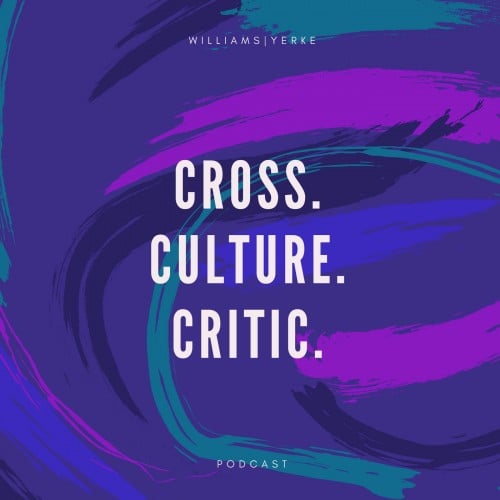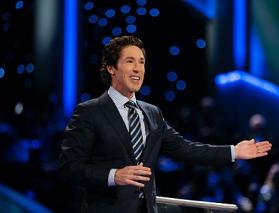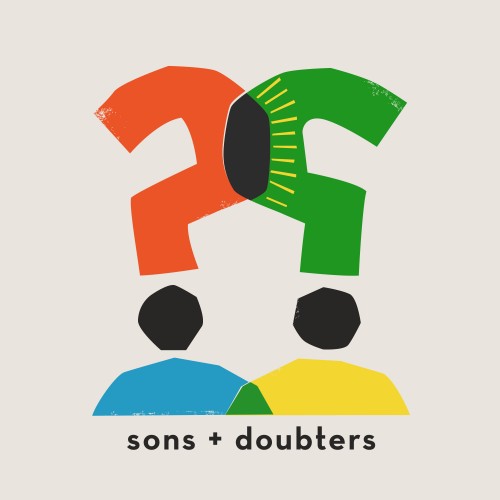
One of the great discoveries I made last year was the “Sons and Doubters” podcast, which debuted in spring 2015. Hosted by Aaron Hale and Luke Brawner, the show bills itself as “an honest discussion about the times when faith is difficult and doubt is easy.” From the first episode — in which Aaron set the tone by describing himself as being in a phase of “deconstruction” about his faith — I knew this would be a riveting weekly listen. And for several episodes that first season, Hale and Brawner discussed topics of faith, discouragement, doubt and more with guests like Derek Webb, Latifah Phillips and Barnabas Piper. These are not always easy conversations, and the show often walks a tightrope between doubt and hope. More than just an insightful listen, it hit on struggles I’ve had or am currently having, and it gave a voice to feelings that I wrestle with. It provides a safe place for questions, which many Christian communities, unfortunately, struggle with providing.
This week, the show returned for its second season. And right out of the gate, it delves into tricky waters about its hosts’ current faith struggles and even their competing visions for the show. I highly recommend jumping in. If you haven’t listened to the first season, now’s a great time to start. The show posts every Wednesday, and is available on iTunes or wherever you get your podcasts.
Hale and Brawner were kind enough to take time from their schedule to chat over email. And their answers were so good that I’m breaking that interview up into two parts, with the second to post tomorrow morning.
How long have the two of you known each other? What made you decide to create a podcast together? Did you have any prior experience ?
Aaron Hale (AH): Luke and I have been friends for a number of years. We both served at a couple of Methodist churches in Houston for a bit. In fact, I really owe getting the job at the one where I was to Luke. That’s a whole other story, but we have had a kindred connection due to both of us being songwriters in Texas for a long time. I reached out to Luke awhile back about some big changes that were going on with me regarding spiritual matters and he brought up the idea about starting a podcast. The rest is history. I have never had any real experience with a podcast or anything, though I have always enjoyed hearing myself talk. Haha.
Luke Brawner (LB): I met Aaron back in 2007, when we played a show together in Fort Worth, benefiting a Turkish missionary radio station. I’d heard his name in music circles for years, but had never met him. I tell people all the time that Aaron Hale is the single most likable person I’ve ever met. We hit it off immediately and became friends. We both eventually wound up in Houston, leading worship at different churches, but attending ANOTHER church on Saturday nights. After a few years, Aaron moved off to the Austin area, but we kept in touch. I had been considering starting a podcast for a while, but didn’t really have any specific direction. “Sons & Doubters” was originally a concept for an album I wanted to write and record with artist friends who had a different perspective on matters of faith than me. I’d been sitting on that idea for years without making any progress. When Aaron told me about the journey he was on with faith and doubt, I decided it’d be a great topic for a podcast. Who better to co-host a podcast than the single most likable person I’d ever met? The idea snowballed, and within a couple weeks we were recording our first few episodes.
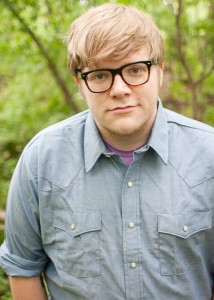
What were the biggest challenges in putting this together, both personal and technical?
AH: The most obvious challenge is that we live in two different cities. I am in Austin and Luke is in Houston. Luckily, I lead worship for several churches in Houston pretty frequently, so we spend a lot of weekends together working on the show. There have been some other challenges, as well, though. Luke and I don’t always see eye-to-eye on some things. You will hear more about that in season two. But, overall, I couldn’t be more proud of this thing we are creating/facilitating. I think this conversation we are having is so important, especially in the times we are in – culturally, politically, and within the institutional church. It is so great that we can play our small part in, hopefully, shaking things up a bit.
LB: Oh man, we’ve had our fair share of challenges. Part of the reason I started thinking about doing a podcast in the beginning was that I assumed it would be really, really easy. I already owned tons of recording gear, so it was just a matter of coming up with an idea worth recording/broadcasting. Podcasting IS really easy, but there was still way more of a learning curve than I anticipated. There have been recording interface malfunctions, mic malfunctions, a TON more editing than I expected, etc. It’s also been an incredible challenge learning how to conduct interviews. I expected conversations with folks to just come easily, but they don’t. As it turns out, interviewing people is hard work! Especially when you’re asking them to discuss things that are really personal, and sometimes difficult to talk about. The other big challenge, for me at least, is having such a nuanced and potentially controversial conversation while still serving as a pastor full time. I would never want anyone to assume that any of the beliefs stated on the show, (mine, Aaron’s or our guests), are at all representative of the congregation I serve.
What I’ve found most refreshing about “Sons and Doubters” is the balance of honesty about doubt and affection for the faith. How do you keep doubt from making you cynical about the church, and was there a conscious decision to make this be free of “church-bashing”?
AH: I think we have been pretty conscientious about that for sure. It isn’t always easy, though. For me, I think, especially. Luckily we have the ability to edit things out that I say in the heat of the conversation after a little time passes and I can cool off some. I think what we ultimately want to show is grace. Grace in the midst of frustration and cynicism. The grace we believe in and discuss on the show goes both ways – to the “unchurched” and to the institution of the church. We recognize that it’s all pretty messy because we are all just people trying to figure life out. And that even in the issues that we may have with the institution itself, we can extend that same grace to everyone involved in the conversation.
LB: I have to remind myself daily to resist my own cynicism. I lived for several years in a pretty dark, cynical state with regard to the Church. I’m thankful to have made it out of that place, but it still requires very deliberate effort on my part to not submit to those instincts. I have to be intentional to choose hopefulness over cynicism. So to that extent, yes, it’s a conscious decision. We don’t do this perfectly either. So that decision is sometimes not made until it’s time to edit the episodes down. I’ve had to cut out plenty of snarky, unfruitful content.
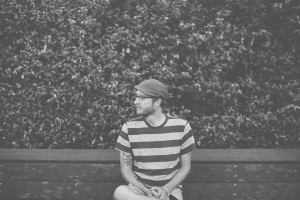
On several of the episodes, the conversation gets quite raw. I’m thinking of Latifah Phillips talking about her medical condition or John Mann’s discussion of addiction. Were you surprised with where your guests were willing to go, and do you have a particular episode that has stuck with you?
AH: It’s really interesting to see where our guests will go. Everyone involved in the show has any number of things going on, so when we ask them to be on the show and they agree, I think their minds are already spinning with the loads they are carrying. It seems that most of them really want to get so much out. One thing I’ve really loved about our show is that we aren’t necessarily making it about getting big names on as much as we are about having people on who have stories that are worth hearing. The human condition is vast and there are so many folks out there whose experiences need to be shared. Some of our guests don’t have access to the platforms necessary to get those stories out and we have really enjoyed being able to help them share what we believe needs to be shared.
LB: Absolutely. Several of the episodes surprised me. Nathan Meredith, Scott Erickson, Latifah Phillips, John Mann. All of those conversations went places I didn’t expect to go. I was so thankful for them though. Ultimately, the thesis of our show is that THAT sort of vulnerability is necessary for the Church. The appropriate safe space for that sort of honesty and vulnerability SHOULDN’T be a podcast. It should be the Church. I’m generally pretty moved by the places Aaron is willing to go in his own story. I’m such a private person, so vulnerability like that always catches me off guard. But, I love it. I think it’s so valuable.
Sons and Doubters posts every Wednesday, and is available on iTunes, Stitcher and most podcast outlets.
Follow the podcast on Twitter @sonsanddoubters
Follow Aaron Hale on Twitter and Instagram @aaronhale. Hear his music here and here.
Follow Luke Brawner on Twitter and Instagram @lukebrawner. He also co-hosts the podcast “Hymnistry,” which you can follow @hymnistry on all social media.


